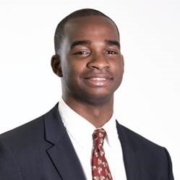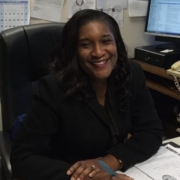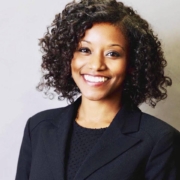Florida’s 12 law schools form new consortium for racial justice
The Florida Law School’s Consortium for Racial Justice will leverage the strengths of every law school in the state to assist community organizations fighting for racial justice and policy reform.
In light of longstanding and recent acts of racial injustice, the deans of the 12 law schools in Florida have formed the Florida Law School’s Consortium for Racial Justice (FLSCRJ). The collective will leverage the strengths and educational roles of every law school in the state to assist community organizations fighting for racial justice and policy reform throughout Florida.
The law schools stand against bigotry and racism and seek to act in concrete ways to make the state of Florida more just for all.
“The FLSCRJ will spearhead or partner in the planning of educational gatherings, conferences, and scholarly symposia, convening scholars, students, and leading practitioners to discuss, devise, and propose legal reforms,” said Anthony E. Varona, dean of the University of Miami School of Law and M. Minnette Massey Professor of Law.
Each law school will designate at least one student fellow to work with FLSCRJ each year. The fellows will collaborate with groups in Florida that have long pursued anti-racism initiatives. Examples of possible initiatives include changes to the process by which juveniles are charged as adults; attempts to end disparate criminal sentences on the basis of race; better regulation of public school resource officers; attempts to equalize funding across public school districts; disruption of the school-to-prison pipeline; ensuring Black-owned businesses have access to loans and state contracts; and the passage of local and state ordinances designed to achieve equal pay for equal work, among many other possibilities.
The law schools’ current partners—including community foundations, non-profit groups, law firms, businesses, policy centers, art collectives, advocacy groups, educational entities, and bar associations—are already well placed to be part of this collaboration. The consortium also welcomes other interested organizations.
Law student fellows will assist FLSCRJ’s partners with legal research, policy reform, strategic advocacy, and ways to use language to resolve conflicts and improve society at large. Fellows will also undergo tailored training to model effective dialogue about race within each law school and across the state as a whole.
The 12 law schools in Florida understand that their highest duty is to train intellectually strong and culturally competent lawyers who seek justice. Inherent in legal training is the expressed expectation that lawyers hold a special responsibility to denounce injustice, particularly in the state of Florida. The preamble to Chapter 4 of the Rules Regulating the Florida Bar states:
“A lawyer, as a member of the legal profession, is a representative of clients, an officer of the legal system, and a public citizen having special responsibility for the quality of justice . . . As a public citizen, a lawyer should seek improvement of the law, access to the legal system, the administration of justice, and the quality of service rendered by the legal profession. As a member of a learned profession, a lawyer should cultivate knowledge of the law beyond its use for clients, employ that knowledge in reform of the law, and work to strengthen legal education.”
Law schools in Florida, therefore, have an obligation to teach students how to speak up when they see wrongs, the consortium maintains. FLSCRJ will emphasize lawyers’ roles in advancing social justice and help law students develop the consciousness they need to speak out against inequalities.
“The consortium will be an alliance in support of existing organizations, signaling that law schools are committed to joining the cause,” said Laura A. Rosenbury, dean of the University of Florida Levin College of Law and Levin, Mabie and Levin Professor. “The initiatives will also make our students stronger, and less myopic, lawyers.”
FLSCRJ will begin by hosting a joint forum on the role of lawyers in crafting policies, advancing racial justice, and correcting social wrongs. With the help of community partners, the consortium will then identify three or four specific projects on which the student fellows will focus over the next year. Finally, FLSCRJ will partner with scholars interested in researching the legacies of slavery and Jim Crow in Florida and their lingering vestiges today.
“Supreme Court Justice and civil rights legend Thurgood Marshall once said, ‘Where you see wrong or inequality or injustice, speak out because this is your country. This is your democracy. Make it. Protect it. Pass it on. You are ready. Go to it,’” said Michèle Alexandre, dean of the Stetson University College of Law. “This advice is timeless. For law schools, lawyers, and law students, it is a moral imperative.”
The 12 Florida Law School Deans are:
- Kevin Cieply, president and dean, Ave Maria School of Law
- Leticia M. Diaz, dean and professor, Barry University Dwayne O. Andreas School of Law
- Nicky Boothe Perry, interim dean and professor, Florida A&M University College of Law
- C. Peter Goplerud III, president and dean, Florida Coastal School of Law
- Antony Page, dean and FIU Foundation Professor, Florida International University College of Law
- Erin O’Hara O’Connor, dean and McKenzie Professor, Florida State U. College of Law
- Debra Moss Vollweiler, interim dean and professor, Nova Southeastern University Shepard Broad College of Law
- Tamara F. Lawson, dean and professor, St. Thomas University School of Law
- Michèle Alexandre, dean and professor, Stetson University College of Law
- Laura Ann Rosenbury, dean and Levin, Mabie & Levin Professor, University of Florida Levin College of Law
- Anthony E. Varona, dean and M. Minnette Massey Professor, University of Miami School of Law
- James McGrath, president and dean, WMU – Cooley Law School Tampa Bay Campus






